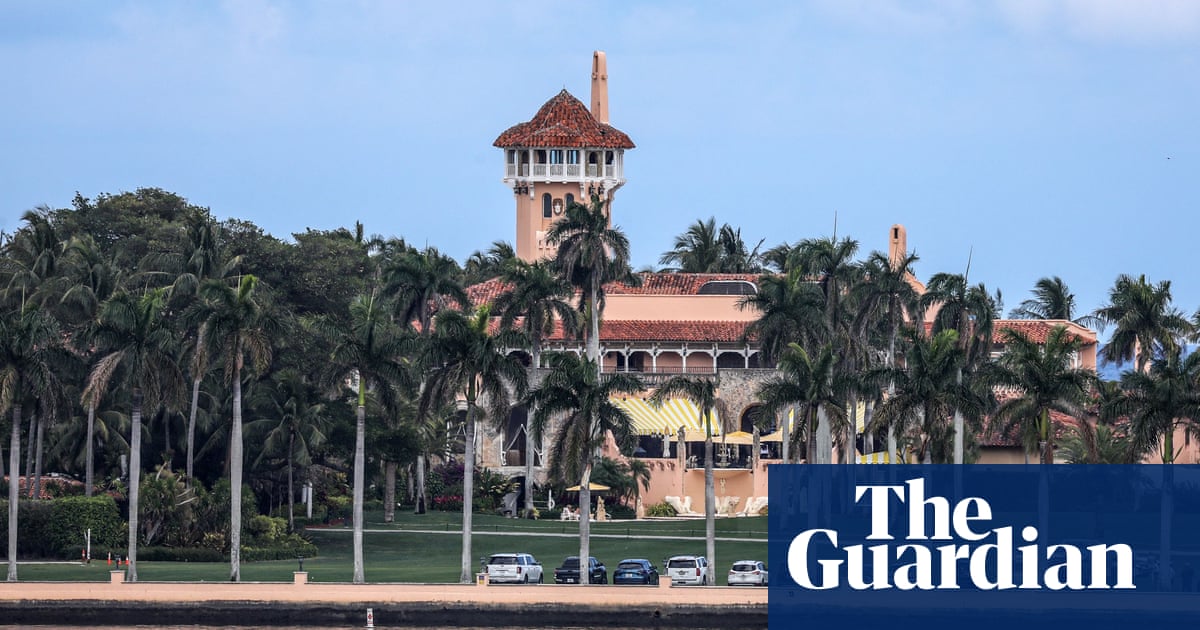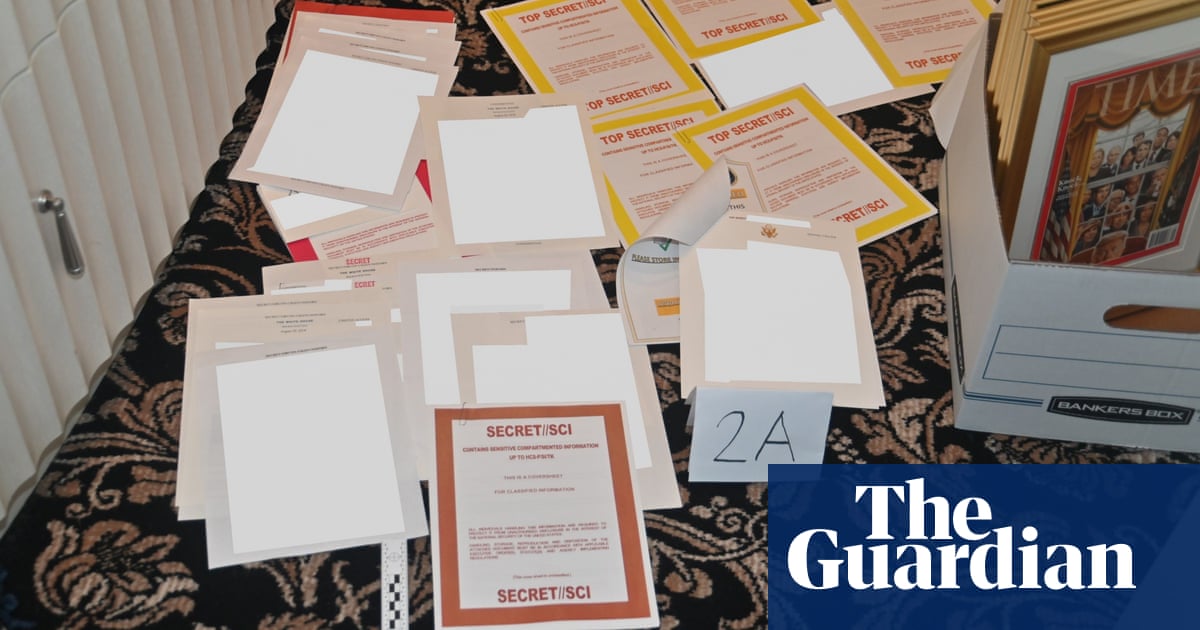
The FBI believed there was probable cause that highly sensitive national defense documents were scattered across Donald Trump’s resort in Florida as well as evidence of obstruction of justice, according to a partially redacted affidavit used to justify the search of the former president’s property unsealed on Friday.
The affidavit – partially redacted by the justice department to protect details about the criminal investigation into Trump’s unauthorized retention of government secrets – indicated the FBI had good cause to seek and execute a search warrant at Mar-a-Lago.
“There is probable cause to believe that additional documents that contain classified NDI or that are Presidential records subject to record retention requirements currently remain at the PREMISES. There is also probable cause to believe that evidence of obstruction will be found,” it said.
According to the redacted affidavit, the FBI sought to retrieve national defense information across several rooms at Trump’s resort, including his home, the foyer to his residence known as Pine Hall, his office, as well as a storage area, among other locations.
The specific mentions of the most private areas at Mar-a-Lago – for instance Pine Hall, which is not particularly widely known – suggests the FBI had close operational knowledge from a source about where the documents were being kept and potentially being moved around the resort.
Exactly how the FBI came to acquire that information was not clear, and vast passages of the affidavit that appeared to indicate how the justice department had that knowledge were redacted so as to not reveal the “roadmap” of an investigation that remains in its early stages, officials said.
But in one non-redacted part of the affidavit, the FBI agent in the Washington DC field office who produced the document indicated the agency had a suspicion that crimes were being committed at Mar-a-Lago.
“I submit that probable cause exists to believe that evidence, contraband, fruits of crime, or other items illegally possessed … will be found at the PREMISES,” the agent stated in the document.
The affidavit also outlined the FBI’s alarm with what the National Archives obtained from Trump in the months before the search of Mar-a-Lago two weeks ago, and how the documents retrieved in 15 boxes contained some of the most classified materials in existence.
The document said that the justice department learned that a preliminary review of the 15 boxes taken to Mar-a-Lago “indicated that they contained ‘newspapers, magazines, printed news articles, photos, miscellaneous print-outs, notes, presidential correspondence, personal and post-presidential records, and a lot of classified records’.
“Of most significant concern was that highly classified records were unfoldered, intermixed with other records, and otherwise unproperly [sic] identified,” it warned.
The order to unseal the document came from Judge Bruce Reinhart, who approved the warrant and is overseeing the case from West Palm Beach, Florida. The order instructed the justice department to submit the redacted affidavit that he had reviewed in the public docket before noon, leading to a tense, breathless wait for many observers in the political and media world.
In an earlier two-page ruling, the judge said the justice department’s proposed redactions were narrowly tailored to keep secret grand jury material, the identities of uncharged individuals and sources and methods used in the criminal investigation – and the remainder could become public.
“The government has met its burden of showing that its proposed redactions are narrowly tailored to serve the government’s legitimate interest in the integrity of the ongoing investigation and are the least onerous alternative to sealing the entire Affidavit,” Reinhart wrote.
The affidavit contains crucial information – notably the probable cause – about the justice department’s investigation into the improper storage of secret government materials at Mar-a-Lago, which, according to the warrant, could constitute violations of at least three criminal statutes.
In a statement on his Truth Social social media network, Trump, in strident language that is typical to him, blasted the release of the document. He called it a “total public relations subterfuge” by the FBI and Department of Justice. He also slammed Reinhart and the decision to allow the raid. “Judge Bruce Reinhart should NEVER have allowed the Break-In of my home,” he said while accusing the judge of having a deep personal animosity towards him.
“WITCH HUNT!!!” the former president said in a subsequent post, using one of the most common phrases Trump deploys in order to portray himself as the victim of a hostile conspiracy.
The partial release of the affidavit is a significant juncture in the developing investigation, being led by the justice department’s national security division, and the attorney general, Merrick Garland, who personally approved the warrant after days of deliberations.
The justice department had originally opposed unsealing the affidavit at all and filed a redacted version only after being forced by Reinhart last week.
Trump had indicated previously that he had supported unsealing the affidavit but his lawyers never filed a formal motion to that effect, instead leaving the effort to a coalition of media outlets that pushed to have the affidavit become public.
Trump has since filed a separate motion to have a so-called special master appointed to determine what seized materials prosecutors can use as evidence in the investigation. The motion also aims to force the justice department to provide a more detailed list of what was retrieved by the FBI.












